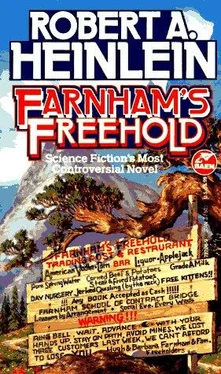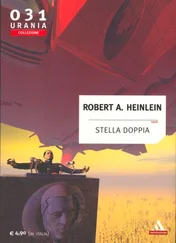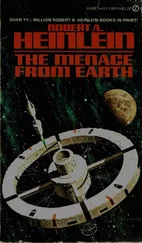Robert Heinlein - Farnham's Freehold
Здесь есть возможность читать онлайн «Robert Heinlein - Farnham's Freehold» весь текст электронной книги совершенно бесплатно (целиком полную версию без сокращений). В некоторых случаях можно слушать аудио, скачать через торрент в формате fb2 и присутствует краткое содержание. Жанр: Фантастика и фэнтези, на английском языке. Описание произведения, (предисловие) а так же отзывы посетителей доступны на портале библиотеки ЛибКат.
- Название:Farnham's Freehold
- Автор:
- Жанр:
- Год:неизвестен
- ISBN:нет данных
- Рейтинг книги:4 / 5. Голосов: 2
-
Избранное:Добавить в избранное
- Отзывы:
-
Ваша оценка:
- 80
- 1
- 2
- 3
- 4
- 5
Farnham's Freehold: краткое содержание, описание и аннотация
Предлагаем к чтению аннотацию, описание, краткое содержание или предисловие (зависит от того, что написал сам автор книги «Farnham's Freehold»). Если вы не нашли необходимую информацию о книге — напишите в комментариях, мы постараемся отыскать её.
Farnham's Freehold — читать онлайн бесплатно полную книгу (весь текст) целиком
Ниже представлен текст книги, разбитый по страницам. Система сохранения места последней прочитанной страницы, позволяет с удобством читать онлайн бесплатно книгу «Farnham's Freehold», без необходимости каждый раз заново искать на чём Вы остановились. Поставьте закладку, и сможете в любой момент перейти на страницу, на которой закончили чтение.
Интервал:
Закладка:
He was there three days. He thought it was three days, as he was fed six times. He always knew when they were about to feed him-and to empty his slop jar, for he was not taken outside for any purpose. He would find himself restrained by invisible spider web, then someone would come inside, leave food, replace the slop jar, and go. It was impossible to get the servant who did this to answer him.
After what may have been three days he found himself unexpectedly caught up by that prisoning field (he had just been fed) and his old colleague and "cousin" the Chief Veterinary came in. Hugh had more than a suspicion as to why; his feeling amounted to a conviction, so he pleaded, demanded to be taken to the Lord Protector, and finally shouted.
The surgeon ignored it. He did something to Hugh's thigh, then left.
To Hugh's limited relief he did not become unconscious, but he found, when the tanglefoot field let up, that he could not move anyhow and felt lethargic. Shortly two servants came in, picked him up, placed him in a box like a coffin.
Hugh found that he was being shipped somewhere. His shipping case was given casual but not rough handling; once he felt a lift surge and then surge to a stop; his box was placed in something; and some minutes, hours, or days later it was moved again; and presently he was dumped into another confinement room. He knew it was a different one; the walls were light green instead of white. By the time they fed him he had recovered and was again "tangled" while food was placed inside.
This went on for one hundred and twenty-two meals. Hugh kept track by biting a chunk out of his fingernails and scratching the inside of his left arm. This took him less than five minutes each day; he spent the rest of his time worrying and sometimes sleeping. Sleeping was worse than worrying because he always reenacted his escape attempt in his sleep and it always ended in disaster-although not necessarily at the same point. He did not always kill his friend the Chief Domestic and at least twice they got all the way to the mountains before they were caught. But, long or short, it ended the same way and he would wake up sobbing and calling for Barbara.
He worried most about Barbara-and the twins, although the boys were not as real to him. He had never heard of a slut being severely punished for anything. However, he had never heard of a slut being involved in an attempted escape and a killing, either; he just did not know. But he did know that the Lord Protector preferred slut meat for his table.
He tried to tell himself that old Ponse would do nothing to a slut while she was still nursing babies-and that would be a long time yet; among servants, according to Kitten, mothers nursed babies for at least two years.
He worried about Kitten, too. Would the child be punished for something she had had nothing to do with? A completely innocent bystander? Again he did not know. There was "justice" here; it was a major branch of religious writings. But it resembled so little the concept "justice" of his own culture that he had found the stuff almost unreadable.
He spent most of his time on what he thought of as "constructive" worry, i.e., what he should have done rather than what he had done.
He saw now that his plans had been laughably inadequate. He should never have let himself be panicked into moving too soon. It would have been far better to have built up his connection with Joe, never disagreed with him, tickled his vanity, gone to work for him and, in time, prevailed on him to adopt Barbara and the kids. Joe was an accommodating person and old Ponse was so openhanded that he might simply have made Joe a present of these three useless servants instead of demanding cash. The boys would have been in no danger for years (and perhaps never in danger if Joe owned them), and, in time, Hugh could have expected to become a trusted business servant, with a broad pass allowing him to go anywhere on his master's business-and Hugh .would have acquired sophisticated knowledge of how this world worked that a house servant could never acquire.
Once he had learned exactly how it ticked, he could have planned an escape that would work.
Any society man has ever devised, he reminded himself, could be bribed-and a servant who handles money can find ways to steal some. Probably there was an "underground railroad" that ran to the mountains. Yes, he had been far too hasty.
He considered, too, the wider aspects-a slave uprising. He visualized those tunnels being used not for escape but as a secret meeting place-classes in reading and writing, taught in whispers; oaths as mighty as a Mau Mau initiation binding the conspirators as blood brothers with each Chosen having marked against his name a series of dedicated assassins, servants patiently grinding scraps of metal into knives.
This "constructive" dream he enjoyed most-and believed in least. Would these docile sheep ever rebel? It seemed unlikely. He had been classed with them by accident of cornplexion but they were not truly of his breed. Centuries of selective breeding had made them as little like himself as a lap dog is like a timber wolf.
And yet, and yet, how did he know? He knew only the tempered males, and the few studs he had seen had all been dulled by a liberal ration of Happiness-to~ say nothing of what it might do to a man's fighting spirit to lose his thumbs at an early age and be driven around with whips-that-weremore-than-whips.
This matter of racial differences-or the nonsense notion of "racial equality"-had never been examined scientifically; there was too much emotion on both sides. Nobody wanted honest data.
Hugh recalled an area of Pernambuco he had seen while in the Navy, a place where rich plantation owners, dignified, polished, educated in France, were black, while their servants and field hands-giggling, shuffling, shiftless knuckleheads "obviously" incapable of better things-were mostly white men. He had stopped telling this anecdote in the States; it was never really believed and it was almost always resented-even by whites who made a big thing of how anxious they were to "help the American Negro improve himself." Hugh had formed the opinion that almost all of those bleeding hearts wanted the Negro's lot improved until it was almost as high as their own- and no longer on their consciences-but the idea that the tables could ever be turned was one they rejected emotionally.
Hugh knew that the tables could indeed be turned. He had seen it once, now he was experiencing it.
But Hugh knew that the situation was still more confused. Many Roman citizens had been "black as the ace of spades" and many slaves of Romans had been as blond as Hitler wanted to be-so any "white man" of European ancestry was certain to have a dash of Negro blood. Sometimes more than a dash. That southern Senator, what was his name?-the one who had built his career on "white supremacy." Hugh had come across two sardonic facts: This old boy had died from cancer and had had many transfusions-and his blood type was such that the chances were two hundred to one that its owner had nnt inst a tnnch nf thn tarhriish hut nraetk~a1lv thp. whn1~ tar barrel. A navy surgeon had gleefully pointed this out to Hugh and had proved both points in medical literature.
Nevertheless, this confused matter of races would never be straightened out-because almost nobody wanted the truth.
Take this matter of singing- It had seemed to Hugh that Negroes of his time averaged better singers than had whites; most people seemed to think so. Yet the very persons, white or black, who insisted most loudly that "all races were equal" always seemed happy to agree that Negroes were superior, on the average, in this one way. It reminded Hugh of Orwell's Animal Farm, in which "AU Animals Are Equal But Some Are More Equal Than Others."
Well, he knew who wasn't equal here-despite his statistically certain drop of black blood. Hugh Farnham, namely. He found that he agreed with Joe: When things were unequal, it was much nicer to be on top!
Читать дальшеИнтервал:
Закладка:
Похожие книги на «Farnham's Freehold»
Представляем Вашему вниманию похожие книги на «Farnham's Freehold» списком для выбора. Мы отобрали схожую по названию и смыслу литературу в надежде предоставить читателям больше вариантов отыскать новые, интересные, ещё непрочитанные произведения.
Обсуждение, отзывы о книге «Farnham's Freehold» и просто собственные мнения читателей. Оставьте ваши комментарии, напишите, что Вы думаете о произведении, его смысле или главных героях. Укажите что конкретно понравилось, а что нет, и почему Вы так считаете.










